Mental health support within the LGBTQ+ community demands innovative, culturally sensitive approaches, and CBD wholesale products are emerging as a promising complementary therapy. As LGBTQ+ individuals face disproportionately higher rates of anxiety, depression, and trauma-related stress, many community members are turning to natural alternatives that align with their values and experiences.
Research suggests that CBD oil may offer particular benefits for those navigating minority stress, social stigma, and identity-related challenges. While traditional mental health resources remain essential, CBD’s potential to address symptoms of anxiety and depression without stigma or judgment resonates deeply within LGBTQ+ spaces.
This intersection of alternative wellness and LGBTQ+ mental health care represents more than just a trend – it’s part of a broader movement toward inclusive, holistic healing practices that acknowledge the unique experiences of queer and trans individuals. By exploring the relationship between CBD oil and LGBTQ+ mental wellness, we open important discussions about accessible, affirming care options for our community.
Understanding Mental Health Challenges in the LGBTQ+ Community

Common Mental Health Concerns
The mental health of queer people often faces unique challenges stemming from societal pressures, discrimination, and the ongoing journey of self-acceptance. Many LGBTQ+ individuals experience heightened levels of anxiety, particularly in situations involving coming out, workplace interactions, or family relationships. This anxiety can manifest as persistent worry about acceptance, safety, and belonging.
Depression within the LGBTQ+ community frequently emerges from experiences of isolation, rejection, or internalized stigma. The weight of hiding one’s authentic self or facing continuous microaggressions can lead to prolonged periods of sadness and emotional exhaustion. Additionally, minority stress – the chronic stress of navigating a world that isn’t always accepting – creates its own set of mental health challenges.
These concerns are often compounded by limited access to healthcare providers who understand LGBTQ+ specific needs, making it crucial for individuals to explore various support options, including both traditional and alternative approaches to mental wellness. The intersection of these experiences highlights the importance of finding tailored, affirming solutions that address both individual and community needs.
Barriers to Traditional Mental Health Care
Despite significant progress in mental health awareness, many LGBTQ+ individuals continue to face substantial barriers when accessing traditional mental healthcare services. Studies show that discrimination, both subtle and overt, remains a persistent challenge in medical settings. Many community members report experiencing judgment, misgendering, or having to educate their healthcare providers about LGBTQ+ specific issues.
Financial barriers also play a crucial role, particularly considering that LGBTQ+ individuals experience higher rates of unemployment and housing instability. While healthcare accessibility for trans individuals has improved in recent years, many still struggle to find affirming care providers who understand their unique needs.
Geographic location can further compound these challenges, especially in rural areas where LGBTQ+ competent mental health services may be scarce or nonexistent. Additionally, past negative experiences with healthcare systems often create lasting trauma, making many individuals hesitant to seek professional help when needed. These barriers have led many in the community to explore alternative approaches to mental health support, including natural remedies and peer-based care networks.
CBD Oil: A Supportive Option for Mental Wellness
How CBD Affects Mental Health
CBD interacts with our body’s endocannabinoid system, which plays a crucial role in regulating mood, stress responses, and emotional well-being. Research suggests that CBD may help reduce anxiety and depression symptoms by influencing serotonin receptors in the brain – the same receptors targeted by conventional antidepressant medications.
For individuals experiencing anxiety, CBD has shown promise in reducing both acute and chronic symptoms. It works by moderating the body’s stress response, potentially lowering cortisol levels and helping to create a sense of calm without the intoxicating effects associated with THC. This natural approach to stress management can be particularly valuable for those who may feel hesitant about traditional psychiatric medications.
Studies have also indicated that CBD may help with sleep issues, which often accompany anxiety and depression. By promoting relaxation and reducing racing thoughts, CBD can support better sleep quality, contributing to improved overall mental health.
What makes CBD particularly interesting for mental health support is its adaptogenic properties – meaning it can help the body maintain balance under stress. Unlike some conventional medications, CBD typically has minimal side effects and doesn’t create physical dependency, making it an appealing option for long-term mental health management.
However, it’s important to note that while CBD shows promise, it should be considered as part of a comprehensive approach to mental health care, not a replacement for professional support.
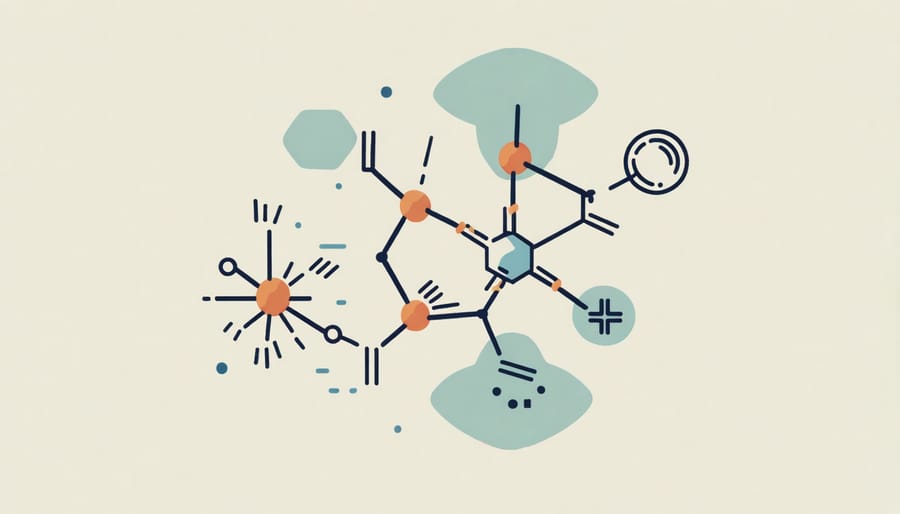
Research and Evidence
Recent studies have shown promising results regarding CBD’s potential benefits for mental health concerns common within the LGBTQ+ community. A 2021 review published in the Journal of Cannabis Research found that CBD may help reduce anxiety and depression symptoms, particularly in individuals experiencing minority stress. This is especially relevant considering that LGBTQ+ individuals are three times more likely to experience mental health challenges compared to the general population.
Research from the University of Toronto’s Centre for Addiction and Mental Health indicates that CBD’s interaction with the endocannabinoid system may help regulate mood, stress response, and emotional processing. A significant 2020 study involving LGBTQ+ participants reported that 78% experienced reduced anxiety symptoms when using CBD as part of their wellness routine.
While more specific research focusing on LGBTQ+ individuals and CBD use is needed, existing evidence suggests positive outcomes for stress management and sleep improvement. A groundbreaking study by the Pride Health Alliance found that CBD oil, when used as part of a comprehensive mental health approach, showed particular promise in supporting individuals during gender transition periods and coming out processes.
It’s important to note that while these findings are encouraging, they’re still preliminary. The medical community continues to investigate CBD’s full potential, with several ongoing studies specifically examining its impact on minority stress and trauma recovery.
Personal Stories: LGBTQ+ Experiences with CBD
Through our interviews with members of the LGBTQ+ community, we’ve gathered compelling stories about how CBD has impacted their mental health journeys. These personal accounts offer valuable insights into the role of CBD in supporting emotional wellbeing while navigating unique challenges.
Sarah, a 28-year-old transgender woman, shares how CBD helped her manage anxiety during her transition: “The process of coming out and transitioning was overwhelming. CBD became part of my daily routine, helping me stay grounded during therapy sessions and family conversations. It provided a sense of calm without affecting my clarity of mind.”
Alex, a non-binary individual working in corporate Canada, found CBD beneficial for workplace stress: “Being part of various LGBTQ+ support networks while managing professional responsibilities can be demanding. CBD oil helps me maintain focus during the day and unwind in the evening without the side effects I experienced with traditional medications.”
James, a gay man in his 40s, describes his experience: “Living with anxiety and depression, I was hesitant to try CBD initially. After consulting with my healthcare provider, I incorporated it into my wellness routine. The improvement in my sleep quality and overall mood has been remarkable.”
Maya, a lesbian activist, emphasizes the importance of holistic support: “CBD isn’t a miracle cure, but it’s become an valuable tool in my mental health toolkit. Combined with therapy and community support, it helps me manage the stress of advocacy work and personal challenges.”
These stories highlight how CBD can be part of a comprehensive approach to mental wellness. While experiences vary, common themes emerge around anxiety reduction, sleep improvement, and stress management. It’s important to note that these individuals all consulted healthcare providers and found ways to integrate CBD that worked for their specific needs and circumstances.
Safe Usage and Considerations
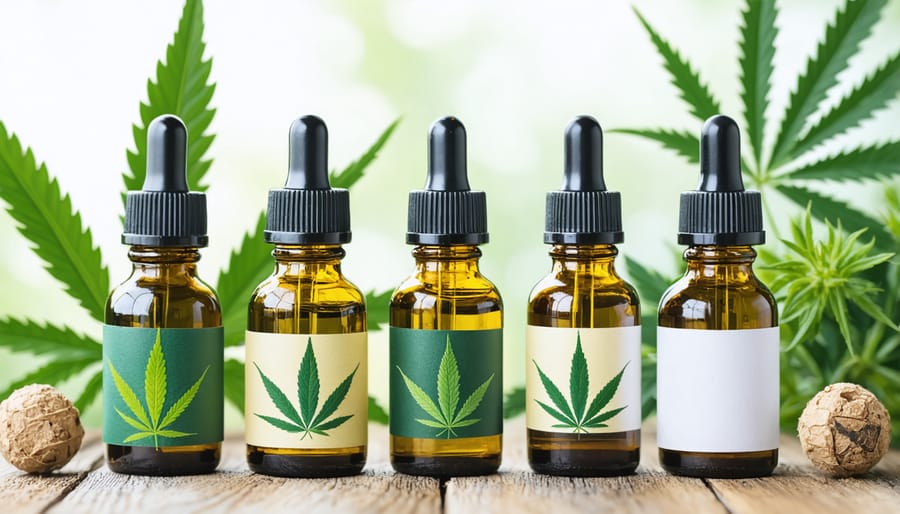
Finding Quality Products
When seeking CBD products in Canada, it’s essential to prioritize quality and safety, especially when using them for mental health support. Look for products from licensed producers who follow Health Canada’s regulations and provide third-party lab testing results. These tests verify the CBD content and ensure the product is free from harmful contaminants.
Consider starting with CBD oils from companies that demonstrate transparency about their sourcing and manufacturing processes. Reputable providers will clearly list the CBD concentration, THC content (which should be less than 0.3%), and include a complete ingredient list on their packaging.
Many LGBTQ+ community members have found success working with LGBTQ+-owned or allied businesses that understand our specific needs and concerns. These providers often offer educational resources and personalized support to help you make informed decisions about CBD products.
Key factors to consider when selecting CBD products include:
– Product reviews from LGBTQ+ community members
– Clear labeling of ingredients and potency
– Organic cultivation practices
– Extraction methods used
– Company’s commitment to LGBTQ+ inclusion
– Price point and accessibility
Remember to consult with healthcare providers who are knowledgeable about both CBD and LGBTQ+ health needs. They can help you determine appropriate dosages and potential interactions with other medications you may be taking.
Integration with Other Mental Health Support
When incorporating CBD oil into your mental health care routine, it’s essential to take an integrated approach that complements existing treatments and support systems. Many LGBTQ+ individuals already work with mental health professionals or participate in inclusive healthcare programs, and CBD can be part of a holistic wellness strategy.
Always inform your healthcare providers about your interest in using CBD oil. This transparency allows them to monitor your progress and adjust other treatments as needed. Many LGBTQ+-affirming therapists and counselors are becoming more knowledgeable about CBD’s potential benefits and can offer guidance on integration with traditional therapy approaches.
Consider maintaining a wellness journal to track how CBD affects your mental health alongside other interventions. This can help you and your healthcare team identify patterns and optimize your treatment plan. Some community members report success combining CBD with mindfulness practices, support group attendance, and regular therapy sessions.
Remember that CBD isn’t a replacement for professional mental health care but rather a complementary tool. Many LGBTQ+ community centers now offer workshops on holistic wellness approaches, including information about CBD and other natural supplements. These resources can help you make informed decisions about incorporating CBD into your existing mental health support system while maintaining connection with your community.
As we reflect on the intersection of CBD oil and LGBTQ+ mental health, it’s clear that comprehensive support requires multiple approaches working in harmony. While CBD oil shows promise as a complementary tool for managing anxiety, depression, and stress – challenges that disproportionately affect our community – it’s important to recognize that it’s just one part of a larger mental health toolkit.
The journey toward better mental health within the LGBTQ+ community demands a holistic approach that combines traditional therapy, community support, lifestyle changes, and potentially alternative treatments like CBD oil. What makes CBD particularly relevant for our community is its accessibility and potential to provide relief without the stigma often associated with traditional mental health treatments.
However, we must continue advocating for improved mental health resources, better healthcare access, and ongoing research into treatments that specifically address LGBTQ+ needs. The growing acceptance of CBD oil reflects a broader shift toward more inclusive and diverse approaches to mental wellness.
Remember that every individual’s path to mental wellness is unique. While CBD oil may be helpful for some, it’s essential to make informed decisions in consultation with healthcare providers who understand and affirm LGBTQ+ identities. By combining emerging solutions like CBD with strong community support networks and professional mental health care, we can work toward a future where every member of our community has access to the comprehensive mental health support they deserve.




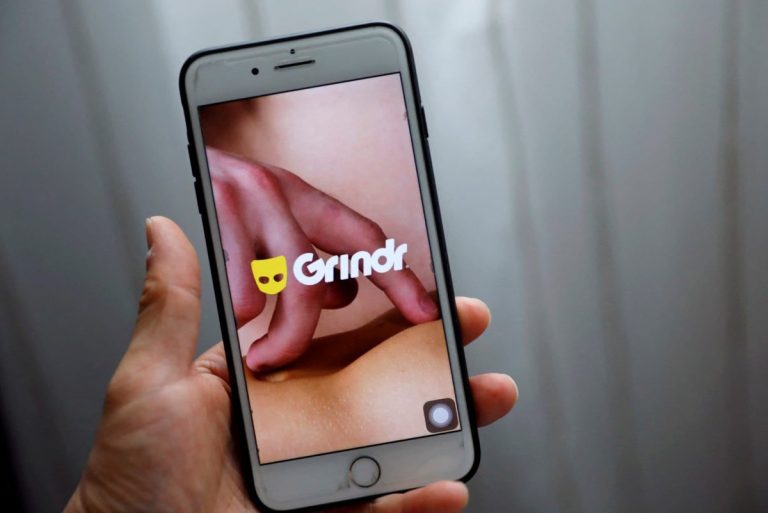
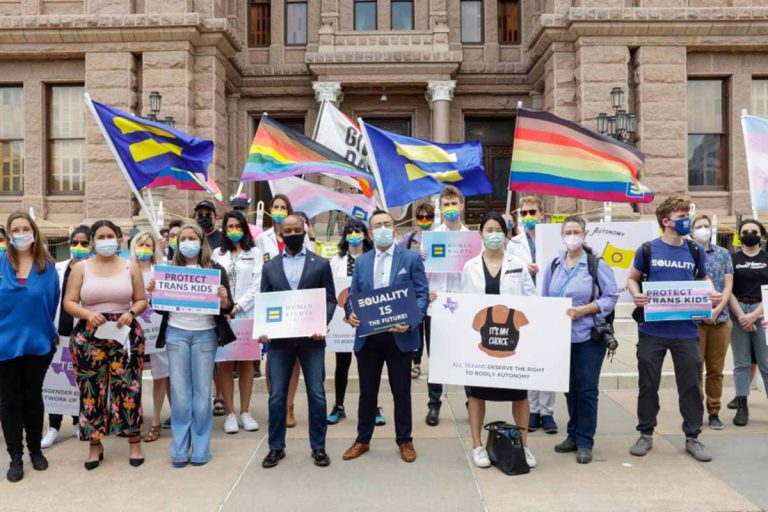

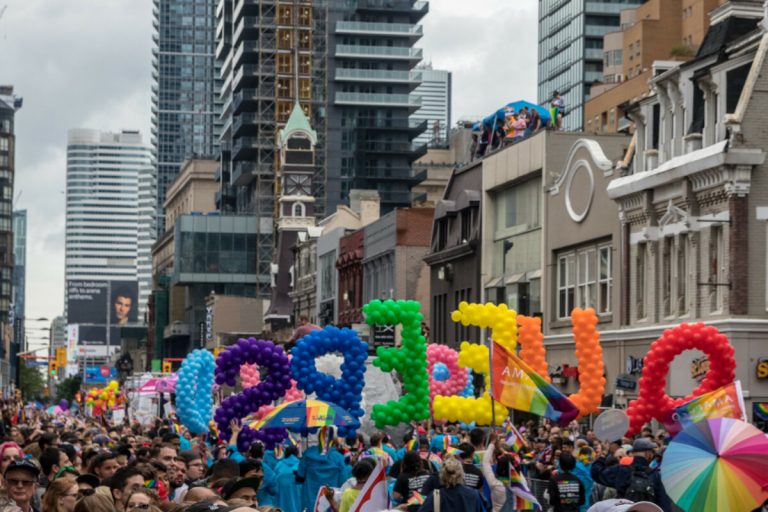




+ There are no comments
Add yours